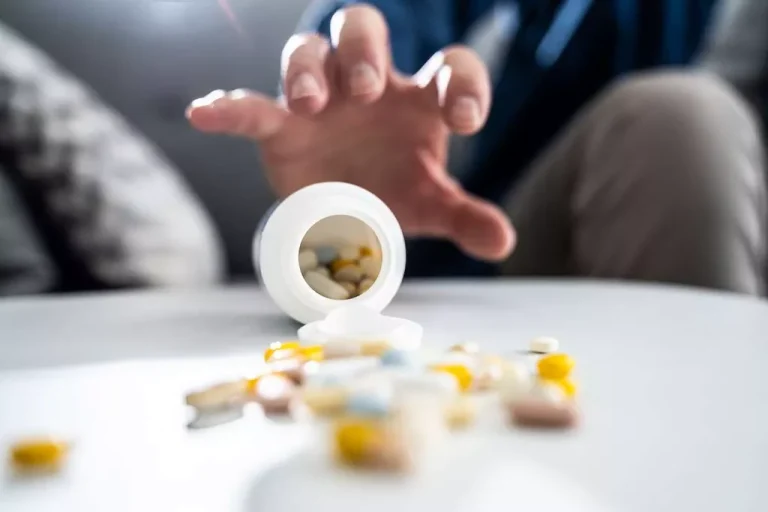Though there may be no easy “cure” for alcoholism, or alcohol use disorder, the condition is treatable. Ongoing treatment and continued recovery efforts can be helpful in successfully managing alcoholism and preventing relapse in the long term. Read on to learn more about the disease of alcoholism and how it is treated. Most people with mild to moderate alcohol withdrawal don’t need treatment in a hospital. But severe or complicated alcohol withdrawal can result in lengthy hospital stays and even time in the intensive care unit (ICU).

Signs of an Alcohol Use Disorder
- If family members try to “help” by covering up for their drinking and making excuses for them, they are playing right into their loved one’s denial game.
- Supporting someone you love, who’s being treated for unhealthy alcohol use, is a lifelong process because recovery is a lifelong process.
- However, if someone who enjoys moderate drinking increases their consumption or regularly consumes more than the recommended quantity, AUD may eventually develop.
- If you are worried about your drinking or have had an alcohol-related accident or injury, you may be offered a short counselling session known as a brief intervention.
There may also be recovery resources available in your community. You may want to inquire with your doctor, any spiritual or religious institutions you belong to, your local Veterans Administrations, your local LGBTQ+ community, or county or regional healthcare authority. Helping someone with an alcohol use problem may be a challenge, but it is possible. More and more resources are becoming available to those struggling with substance use problems.
What is the treatment for alcohol withdrawal?
Listen to relatives, friends or co-workers when they ask you to examine your drinking habits or to seek help. Consider talking with someone who has had a problem with drinking but has stopped. Naltrexone taken as-needed, rather than daily, can help reduce binge drinking for people with alcohol use disorder, according to new research. If you drink more alcohol than that, consider cutting back or quitting. Recovery can take a long time, so you may need ongoing treatment. Instead, these are groups of people who have alcohol use disorder.
Withdrawal symptoms
Ways you can try to relieve stress include reading, listening to music, going for a walk, and taking a bath. People who accidentally consume methanol or isopropyl alcohol may need how to treat alcoholism hemodialysis. This is a mechanical way of filtering waste and toxins from the blood. You watch as your family member or friend slowly changes with each tip of the bottle.

Your loved one’s motivation for recovery hinges on the encouragement and support they get from others around them. Getting plenty of sleep, eating properly, participating in regular exercise, meditating, even positive self-talk are healthier alternatives to drinking and can help your loved one prevent relapse. Traditional treatment, espoused by Alcoholics Anonymous and the Salvation Army, among others, is based on abstinence. Linde said that focus sometimes leads to a rigid mentality among those whose lives have benefited from absolute sobriety and see it as the only way to overcome alcohol use disorder (AUD).
Recovery possible without abstinence, NIAAA says
Alcohol (ethanol) depresses (slows down) your central nervous system (CNS). If you consistently consume significant amounts of alcohol, your CNS gets used to this effect. Your CNS must work harder to overcome the depressant effects of alcohol to keep your body functioning. A sober life doesn’t have to mean more time at home as you try to block out triggers. It can mean more time for your other interests, and even new interests. More time to meet new people, catch up with old friends and try new things.
Attending meetings, which are held all over the world, allow you to share your experience with others and find strength and hope from them and their experiences. Additionally, seeking therapy, either as a family, by yourself, or both, can also help you navigate recovery with your loved one. If you’ve been covering up for your loved one and not talking about their addiction openly for a long time, it may seem daunting to reach out for help. However, it’s important to make sure you’re getting the support you need as well.

Relapse rates are common among those who seek treatment for an addiction. It’s natural to want someone you care about to stop drinking so heavily. Odds are, your desire is no secret, either — which is why you should be wary if that person tries to “trade” a change in addictive behavior for something.
- But as you continue to drink, you become drowsy and have less control over your actions.
- This will give you a good idea of how much alcohol you’re drinking, the situations in which you drink, and how you could start to cut down.
- People with alcohol use disorder can’t stop drinking even when it causes problems, like emotional distress or physical harm to themselves or others.
- Alcohol withdrawal can range from very mild symptoms to a severe form, known as delirium tremens.
- GABA is thought to be partly responsible for inducing a craving for alcohol.
- It typically affects people with alcohol use disorder (AUD).
- You might spend a lot of time thinking about your actions as it relates to their addiction, says Dr. Anand.
- The more familiar term “alcoholism” may be used to describe a severe form of AUD, but physicians, researchers, and others in the medical community tend not to use the word.
- Too much alcohol affects your speech, muscle coordination and vital centers of your brain.
